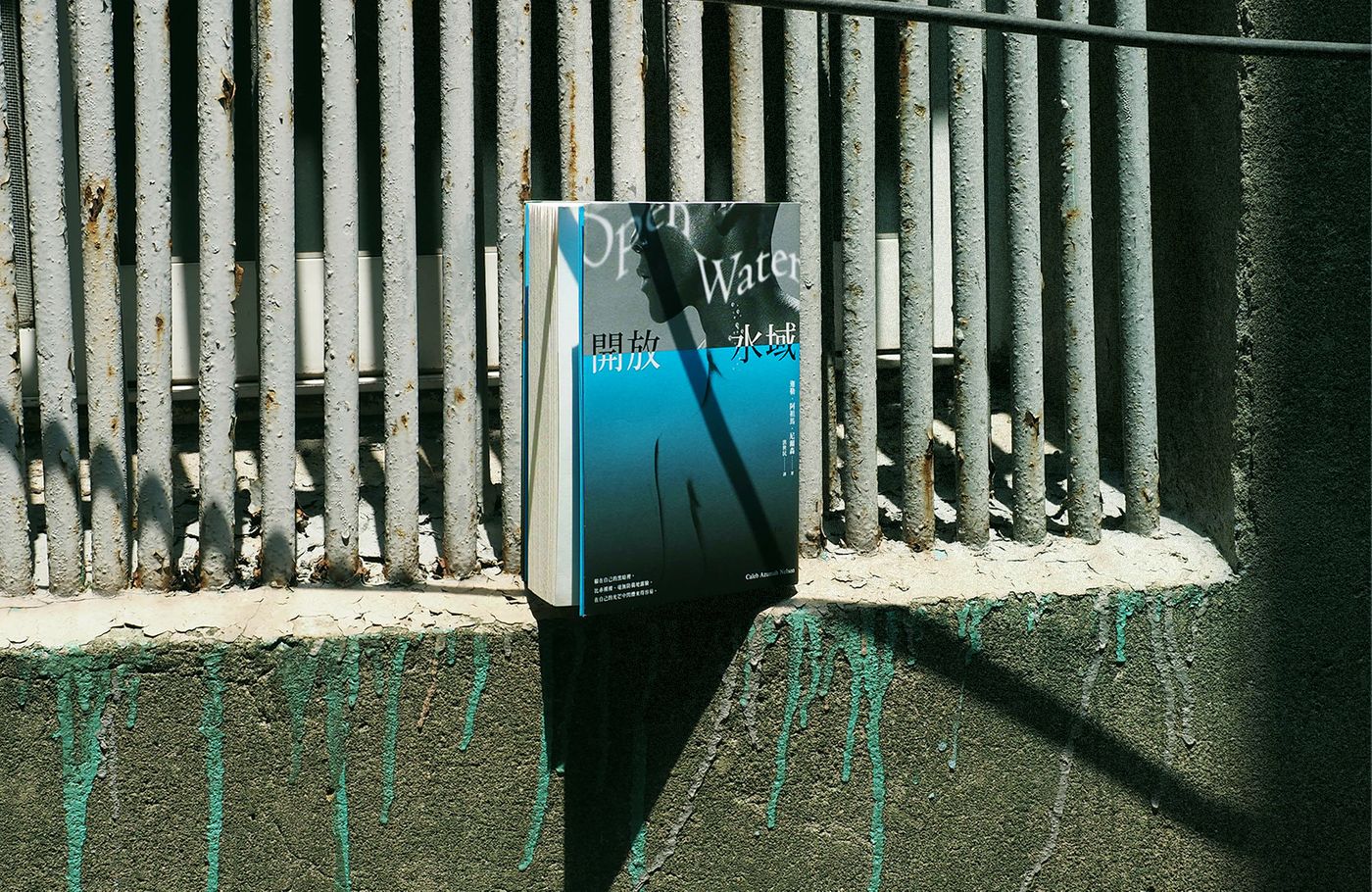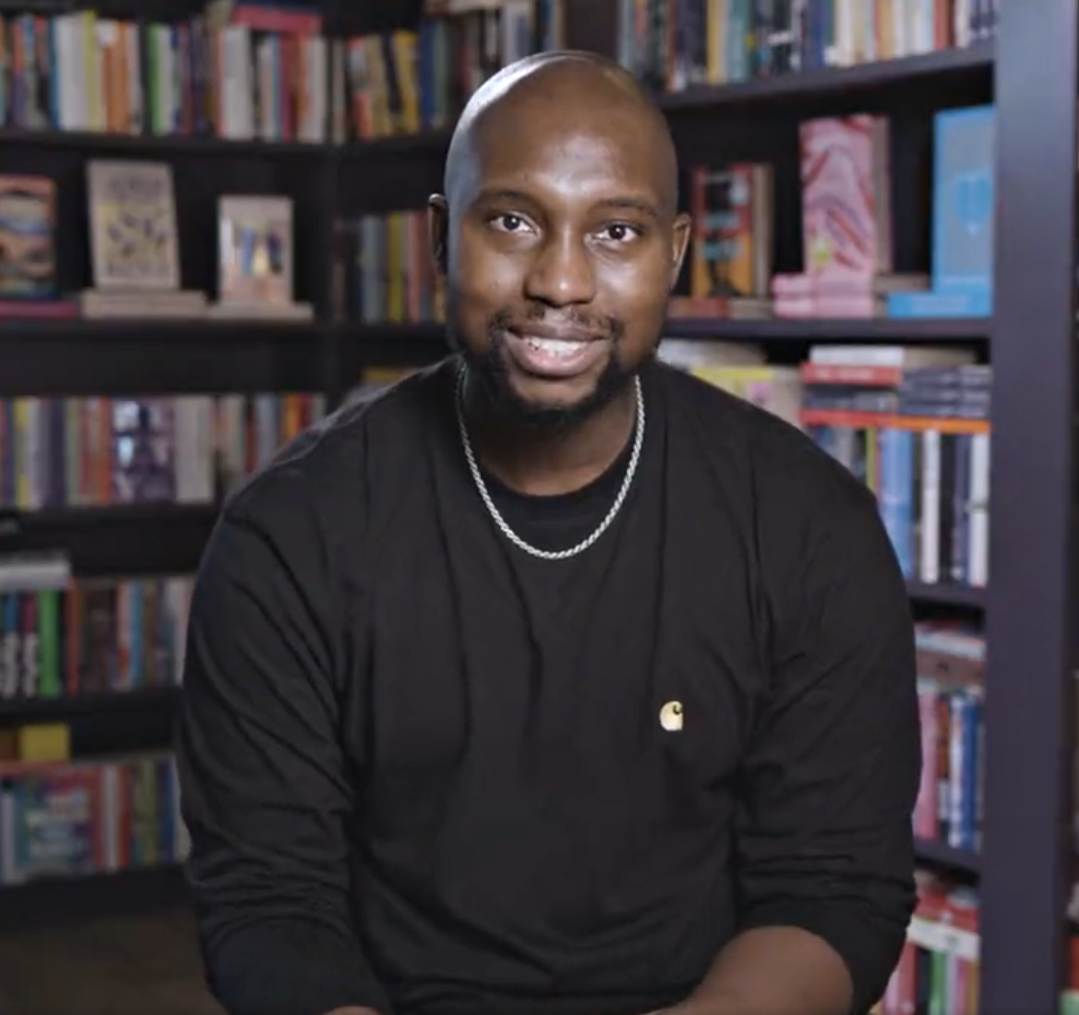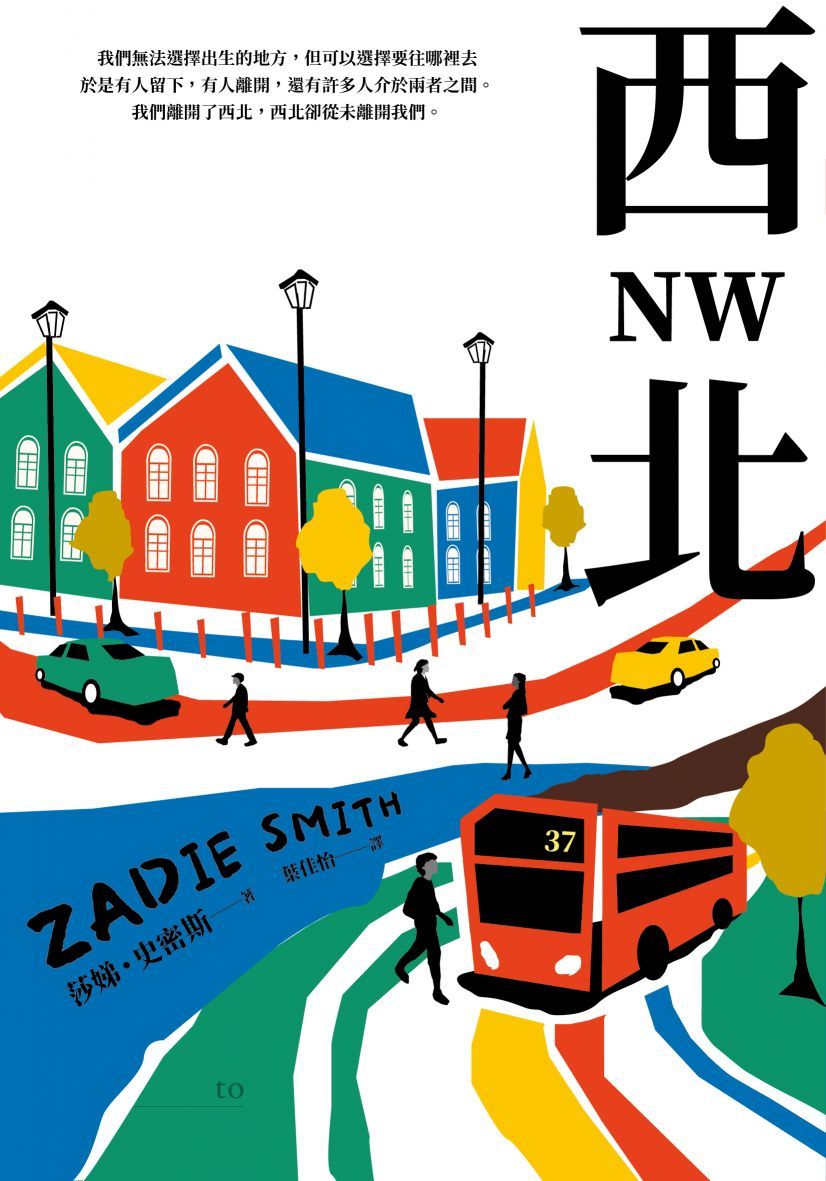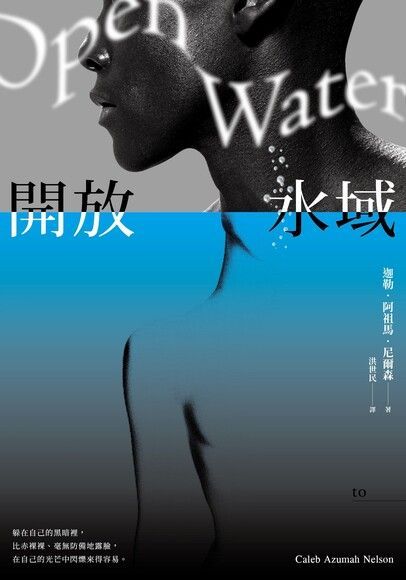Book Review Good-looking characters will swim in your body: Review of 'Open Water'

Author| Deng Jiuyun (Actor, Writer)
People can easily have a song or a movie at the same time, but co-owning a book or a story has always been a luxury for me. I can only walk with the author, learn to stay in the same waters as the characters, listen to his music, watch his world, and paddle along.
Talking about the novel "Open Water", it is bound to mention the identity of the author. Caleb. Azuma. Nelson (Caleb Azumah Nelson) is a British Ghanaian photographer under 30, bald, white teeth, strong, loves jazz and rap. This is his first novel, and it adopts a "second-person" perspective throughout.

The story takes place in London. The summers there are extremely short, occasionally accompanied by a miserly drizzle of ash. Working when the sun is shining is a crime at all.
During the short summer days in London, he walked with her, ate fried chicken, listened to music on the sofa, and spent the whole night doing nothing. It's a sign of love, we're all familiar with it. "Doing nothing in itself is a kind of meaning, a kind of intimacy. Not filling time with someone is trust. Trust is filling time with each other." This is a seed planted in winter, and finally sprouted in summer. Although they stirred and turned the soil from time to time, they still did not stifle this stubborn fruit. It is a fate, it is destined, they fall in love at first sight.
Regarding second-person writing, the author Xie Kate's introduction in the book has a very complete analysis. I must admit that when I first watched it, I felt a little hypocritical. In my early years, I used the second person to complete a lot of my work, whether it was to lift the burden of writing, to create a sense of intimacy, or to escape from the narrative. But I soon found out that this method has the suspicion of "atomizing" my own feelings, making those things that I really want to express seem to be slipping up and down on a ramp full of oil, and even misleading others. This is exactly what I am. attempt.
The second-person narration of "Open Water" is a little more subtle, like Nielsen's "camera" perspective, but with some contemporary art selfie elements added to blur the subject between posed and documentary. It can easily determine the reader's "seeing" and "gazing". One of my favorite recurring lines in the book: being watched is one thing, being seen is another. If you deduce this concept and writing skills, and match it with the background music of a large number of rappers mentioned in the book, the hypocritical feeling will gradually become "smart".
"Sometimes the image you make is so weak compared to everything you feel. You write your thoughts down in hopes of constructing a narrative of the conflicts that are bubbling inside you. You want it to be like Random violence is half direct. Too bad it's not, it's not that simple."
If music is a dialect, writing and photography are the official languages that Nielsen worked hard to create. Because of their black skin, because of the blood flowing in their bodies, because of their curly hair, their every movement, look, and movement were watched fiercely and constantly brushed past the danger of death. It's never been that simple.
The "you" in the story loves the "Northwest" by British novelist Zadie Smith. He keeps rereading it and signing her autograph with the tattered novel. She asked him: Where does your family come from? He said, Ghana. She said my mother was married to a Ghanaian and you are very nice people. Zadie Smith is half Jamaican, and their skin color puts them in the common unit of "One Gaze". They will definitely see each other.

"Happy endings are by no means universal. There is always someone left behind. And in London, where I grew up, as it is today, that person is mostly a young black male."
This is Zadie Smith's most tender gaze on Nelson. As for the enthusiasm and embarrassment of the young lovers in the novel, the poet and the barber have a strange panoramic view - the poet sees you, sees her, sees the ripples and the sunken stone, and keeps you two away from troubles. Seeing her and him in the mirror, the barber begins by pointing out their "connection"—a resonance that shouldn't be defined as friendship, affection, or simply relationship. She slid her arms, he kicked forward, they were in the same waters longing for empathy, and I applauded as I beat the waves.
Readers who have read "Northwest" can more or less recognize the profound influence of this novel on "Open Water", how the "wrong death" of peers that is staged every day affects another innocent soul, and the origin of race in the stomach. The natural rhythm in the depths is sometimes disturbing and painful.
Zadie talks about Roland . Rereading Bart and Nabokov, I think Nelson is not only an ideal "manufacturer" reader (continuously reading and producing photography and text) in Bart's opinion, but also the kind of "butterfly collection" in Nabokov's mind. The author”, which combines the details of textual aesthetics and self-experience.
"Open Water"'s poetic text narrative is highly recommended to be paired with classic hip-hop rap, so that it doesn't fall off the mark (for example, the "Bottom Theory" of "Explorations" or the "Moonlight" soundtrack are also good). It's a wonderful feeling of being held by the sea in open water. ●( The original text was first published on the OPENBOOK official website on 2022-07-21)

open water
Open Water
Author: Caleb. Azuma. Caleb Azumah Nelson
Translator: Hong Shimin Publishing: Chunk Culture
About the Author
Caleb. Azuma. Caleb Azumah Nelson
Ghanaian-born British writer and photographer whose first novel won the Booker Prize for Best Novel Novel. In 2019, due to the loss of several relatives one after another, in grief, he felt as if he had lost his actual body, so he started writing, trying to use this as an anchor to retain his will in the moment.
For Nielsen, writing and photography go hand in hand, and both require creators to be open to expressing themselves, to be authentic about the way you see the world and everything you do in it. Facing a blank manuscript is like facing yourself, asking who you are and writing down all the little things that make you up.
This work has been hailed by many book critics as the most anticipated newcomer's work, and it is also a powerful member of the new wave of British black literature. Its prose is like poetry, allowing the black culture to embellish it with a light weight without being overly self-indulgent, but it cuts through the complex issues of the black ethnic group in the UK with a sharp knife. He talks about race, about masculinity, about love and the exclusivity of art and community. The rare second-person narration has a more intimate conversation atmosphere, like a close friend sitting opposite you and talking about this summer encounter.
Like my work? Don't forget to support and clap, let me know that you are with me on the road of creation. Keep this enthusiasm together!



- Author
- More